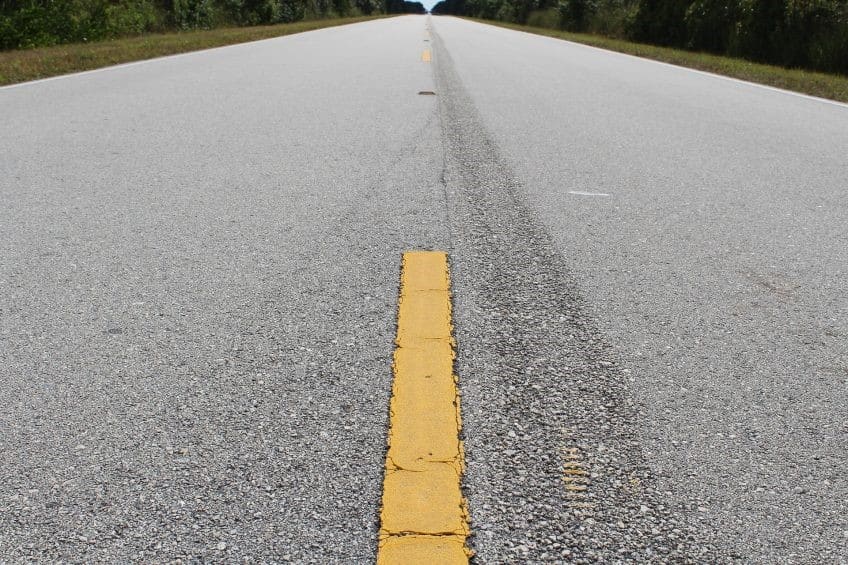Top 10 Questions Answered
Top 10 Questions To Ask A Personal Injury Attorney
There are a number of sources that suggest you ask your personal injury attorney a number of questions, some in the form of Top 10’s, before you hire them . I have searched the internet and found the top 10 questions, based on suggestions, for clients seeking to hire a personal injury or medical malpractice attorney and I have answered them for you here.
1. What areas of law does the attorney specialize in?
We focus our practice on personal injury and medical malpractice cases in Florida. I am a licensed attorney in Florida and have based my entire legal career in Florida. Further, I began practicing in the areas of personal injury and medical malpractice in 2007 and have only represented plaintiffs in these types of cases ever since.
I have never represented insurance companies and I do not defend lawsuits. Instead, I bring lawsuits on behalf of people who have been injured or suffered a loss against the insurance companies and against doctors and hospitals who provide substandard medical care.
2. Has the attorney taken cases similar to this one in the past? How many? How did they turn out?
I have represented hundreds of clients on different injury and malpractice matters over the years. I have listed some of the results on my case results page. There are many more settlements that are not listed because the list would grow to be too long and cumbersome. Further, I typically review 1,000-1,500 potential cases on an annual basis.
Many of these potential cases are not cases for one reason or another but yet we try to figure out how to help them regardless of whether they have a case or not. Chances are that out of the many clients I have accepted and the many more who have called to discuss their potential cases, I have some experience with a situation such as yours.
If I don’t know enough about the subject area that your case involves, I am happy to do some research and learn more about the subject in order to help you. If ultimately I cannot help you or if you need a different lawyer for your case, I will tell you that free of charge.
3. Will other attorneys be working on this case?
This is an easy one. We are not a large, volume based law firm with more cases than we know what to do with. We evaluate our cases very carefully and take the time to work each case to a good result. We are located across the street from Lakeland Regional Medical Center to help you and provide legal advice quickly when you or a loved one is in the hospital after a serious accident or illness.
Because our location on Lakeland Hills Boulevard is central to the City of Lakeland and many medical offices, you are frequently able to stop in before or after a medical appointment. We are the only personal injury law firm across the street from the hospital and I actually work all of the cases that come in my door.
4. How long does the attorney think it will take to resolve this case?
The answer to this question depends mostly on the injury and the type of case that you have. Certain types of injuries and medical malpractice cases typically take longer than other cases to get to a resolution than others. What you need to know about the time frame of most cases is that you should ideally reach maximum medical improvement (or “MMI”) before you make a demand for money. Doing this helps to ensure that you have reached a final diagnosis on your injuries and have the evidence to show that your injuries are in fact permanent.
Another factor in how long a case will take to resolve is who the party making the payment will be. If you take a person to court attacking personal assets, you can expect it to take longer than dealing with an insurance company. Some insurance companies will fight more than others.
Finally, not all cases settle. Some cases have to be taken all the way through a trial because there is no other option. This is further discussed in my answer to question numbers 7 and 9 below.
5. Does the attorney work on a contingency basis?
Yes. We offer free consultations and case reviews, including second opinions. If your case is accepted by us, we do not make any money until money is recovered for you. We risk our time and case costs that we advance on your behalf.
If a case does not pan out, then you owe us nothing and we lose our time and money in the case. This is our incentive to choose only cases with enough merit to them. We don’t want to waste your time or anyone else’s with a case that isn’t likely to be successful.
6. Can anything be done to improve the chances of the case being successful?
The truth is hard to argue with if you have the evidence to support it. This is why we suggest that you take photographs at the scene of any incident (regardless of whether it is a car accident, slip and fall, or a medical procedure gone wrong). This is also why we suggest that you follow the recommendations of your doctors.
Insurance companies operate based on a “paper record.” You might be experiencing a number of problems, but if they do not appear in your medical chart, then the insurance company will deny that those problems exist. Insurance claims are about documentation, documentation, and more documentation.
If it is not documented in your records, then you are not getting credit for it in your claim. Likewise, in addition to what is said in your medical records, a picture can be worth thousands of words (if not more) and can be the key evidence you present in your case. Once you drive away from an accident scene or you bandage up an injury, you may not be able to get a photograph of it again.
I know that most people do not think in terms of a lawsuit after something happens, but as soon as you realize that you might have a claim, then it is time to start documenting and preserving evidence that may be crucial.
7. How frequently does the attorney go to trial?
This question has become the subject of more and more personal injury advertising. The large volume law firms want you to believe that they take their cases to trial and that you need to do so on a regular basis. I have friends who work for such large volume law firms and they have an annual trial quota to meet. If they do not meet the trial quota, then they do not get a bonus for the year.
What many people do not know about this practice is that it does not matter for purposes of the trial quota whether the attorney “won” the case or got a good result at trial for the client. Instead, the purpose behind the quota is so that the large law firm can advertise that they try cases. From talking with my friends who work for large volume based law firms, the kinds of cases that they take to trial are typically ones where there is nothing to collect even though there is a liability. Many of these cases are not even defended and are “empty chair” trials.
Therefore, in fully answering this question, you have to cut through the “game” and talk about what is best for each client and their case. The reality is that the jury trial is disappearing on a national level. There are many reasons for this that can’t be explored fully in this answer. However, settlements are clearly serving a purpose to both sides.
Claimants and insurance companies alike are getting smarter about which cases they take to trial and the risks associated with doing it. An old fashioned “go big or go home” approach is not always the best. On the same token, if the insurance company (in any type of case) does not take your claim seriously, then you may not have a choice except to take your case to trial. This is where the real fight takes place.
With that being said, a personal injury law firm in a medium sized locality such as Lakeland can expect to actually go to trial once every couple of years on average. Anyone who says that they try 6 or more cases a year isn’t putting enough effort into negotiation, isn’t keeping their clients best interests at heart, or they are empty chair trials that are nothing more than a statistic.
8. Has the attorney ever been censured or disciplined by any legal or ethics committees in the past? If so, why?
No. I have never been censured or disciplined by the Florida Bar. Here is my Florida Bar member profile so you can you look me up.
9. If client and attorney disagree on accepting a settlement will the attorney yield to the client’s wishes?
A client’s case ultimately belongs to the client and no one else. This means that the client makes all of the final calls. However, you generally don’t hire an expert to disagree with their advice. The whole reason people hire attorneys is to separate themselves from the very personal and emotional nature of suing someone.
This is why there is the expression that “he who represents himself has a fool for a lawyer.” Having had a personal injury case of my own (I was bitten on the leg by a Chow-I am OK now by the way) and having settled it, I have felt all of the same emotions that I see that my clients experience. I can relate to the feeling that no amount of money is ever enough and the feeling that a settlement is in some way “selling out.”
However, having been an attorney for as long as I have, settlements do a lot of good by bringing closure and enabling clients to move forward. Your case is personal to you but it is nothing more than a financial transaction to the insurance company.
While you might think that I settle all of my cases, I do not. I might settle a lot of my cases as most attorneys do, but I do not settle all of them unlike some attorneys who have built a business model that depends on settlements. I will try a case when it is necessary, however I also do not drag clients through trials unnecessarily or for my own benefit so I can advertise.
The client ultimately decides what to do and that is that.
10. Can the attorney provide references from past clients?
Yes, I have a few references posted on the website and reviews online in various sources.
Call Us For Help With Your Case
If you have been injured in a car accident in Florida, please contact a Florida personal injury attorney for a free case review. We serve clients with personal injury and medical malpractice cases in Polk County including Lakeland, Winter Haven, Bartow, and Haines City, Florida.


